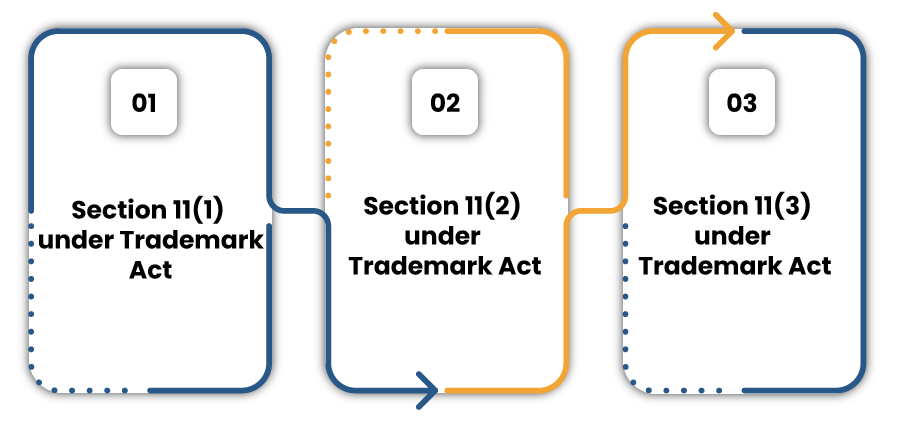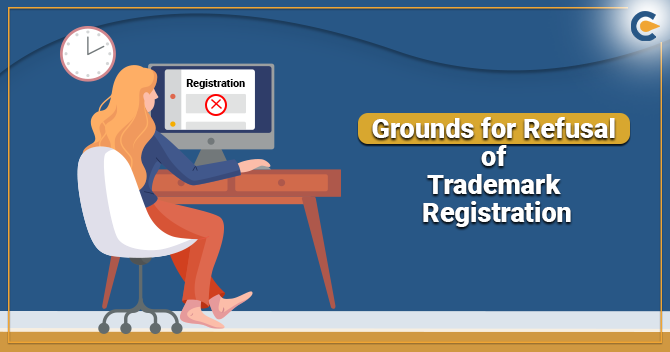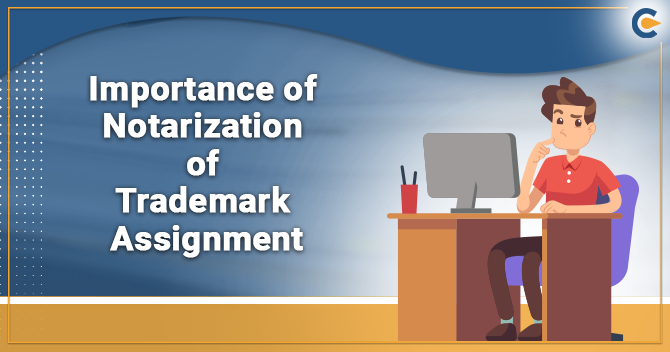In our country, Trademarks are registered under the Trademarks Act, 1999. A company or individual seeking a trademark for intangible assets must apply to the Registrar of Trademark. The submitted application was examined on the predetermined ground by the registrar for any loopholes. After fulfilling the basic criteria, the application gets the registrar’s approval and the certificate is granted to the applicant. The Trademark Act, 1999 also provides list of trademarks that are not eligible for registration. This blog consolidates information regarding the absolute & relative grounds for Refusal of Trademark Registration.
Absolute Grounds for Refusal of Registration
The section 9 of the Trademark Act, 1999 talks about the absolute grounds for Refusal of Trademark Registration. Any trademark that comes under the vicinity of this act is not eligible for trademark registration. The list below entails trademarks that fall under this section.
- A trademark that lacks distinctive character is not eligible for registration.
- Trademarks exclusively enclose indications or marks meant to serve in trade to define the quantity, quality, kind, values, intended purpose, or geographical origin of goods or services rendered.
- Trademarks that exclusively enclose indications or marks which have become conventional in the established practices of the trade.
- Trademarks that confuse the public domain.
- Trademarks that are sensitive and have the potential to hinder the religious susceptibilities of any class of citizens of India.
- Trademarks which comprise obscene or scandalous matter.
- If the trademark utilization is not permitted under the Emblems and Names (Prevention of Improper Use) Act, 1950.
- Trademarks which comprised of marks that result from the nature of goods themselves.
- Trademarks enclose marks that render considerable value to the goods.
- Trademarks consist of marks of the shape which gives substantial value to the goods.
The Act provides for an exception related to the first three points. According to the act, the trademark that falls under the regime of the first three points shall be refused registration provided the trademark steak around with certain traits such novelty and distinctiveness.
Read our article:A Deep Analysis on Benefits of Trademark Registration
Relative Grounds for Refusal of Trademark Registration
Section 11 of the Trademark Act shed light on the relative grounds for Refusal of Trademark Registration. The section provides an exception concerning the grounds of refusal. If the exceptions are duly met, then the trademark under this section can be registered.


Section 11(1) under Trademark Act
Section 11(1) provides the following grounds for refusal:-
Section 11(1) in the Trade Marks Act, 1999, a trademark would be not eligible for registration if,
- It bears some resemblance with the earlier trademark.
- It gives the same visual appeal as compared to the previous trademark that covers a certain category of products and services. This may trigger confusion among the masses.
Section 11(2) under Trademark Act
Section 11(2) provides the following grounds for refusal:-
- Trademarks that would likely to hamper the earlier well-recognized trademark in India
- A trademark containing harmful traits that may hinder the distinctive character of the similar well-recognized trademark in India
Section 11(3) under Trademark Act
Section 11(3) provides the following grounds for refusal:-
- The trademark’s utilization is bound to the prohibited passing-off law safeguarding the unregistered trademark concerning the trade.
- The utilization of the trademark is prevented under the Copyright Law.
- The refusal of registration is not possible for trademarks cited in Section 11(2) & 11(3) if an objection is raised by the opposition proceedings the previous trademark owner.
Section 11(4) talks about the exception to the entire grounds cited above. According to this section, the trademark that comes under the canopy of Section 11 can be registered if the owner of the previous trademark consents to the registration. If the owner of the previous well-recognized trademark renders this permission to register the latter trademark, the registrar can register it.
Names falls Outside the Regime of Trademark Registration
The section 13 & 14 of the Trademark Act states that the trademarks possessing specific names can confront refusal of registration. Trademarks containing words widely used for any chemical compound or element related to the chemical substances are not eligible for registration.
Trademarks that deceive the person by manifesting the relationship with the living person can be declined registration unless the consent of such living person is obtained.
Likewise, trade refusal of registration marks, which wrongly manifests a bonding with any dead individual within 20 years of furnishing the application, can encounter refusal of registration if the permission of legal representatives of such individual is obtained.
Example Related to Refusal of Registration
In light of the above grounds, the section below encloses list of the words which were prohibited under the law for the registration.
- Words like ‘Shimla[1]‘ or ‘Himalayan’ were not eligible for registration as they manifest geographic origin.
- Words like Rasoi or Janta are the widely used terms; therefore cannot be registered.
- The word ‘Saffo’ closely resembles the term ‘Saff’, meaning clean that often used for cleaning power. These words cannot be registered because they reflect the character of the goods.
- The word ‘Umbrella’ was disapproved for registration since it bears the traits of umbrella-like shower bath curtains.
- The word ‘Electrix’ for electrical appliances like vacuum cleaners was disapproved owing to its similarity with the common term ‘Electric’.
- A mark reflecting the part of the chain wheel & chain was disapproved by the registrar since they were non-distinctive in nature.
Conclusion
Trademark Act duly takes care of the interest of the companies or individuals holding registered trademarks so that no one can misuse their intangible assets.
Trademark Act provides individuals with a right to sue the defaulter accountable for counterfeiting the registered mark or logo. If you have queries related to the Refusal of Trademark Registration, then you can mitigate your doubt by connecting with CorpBiz’s experts.
Read our article:Overview on Cost of Trademark Registration











